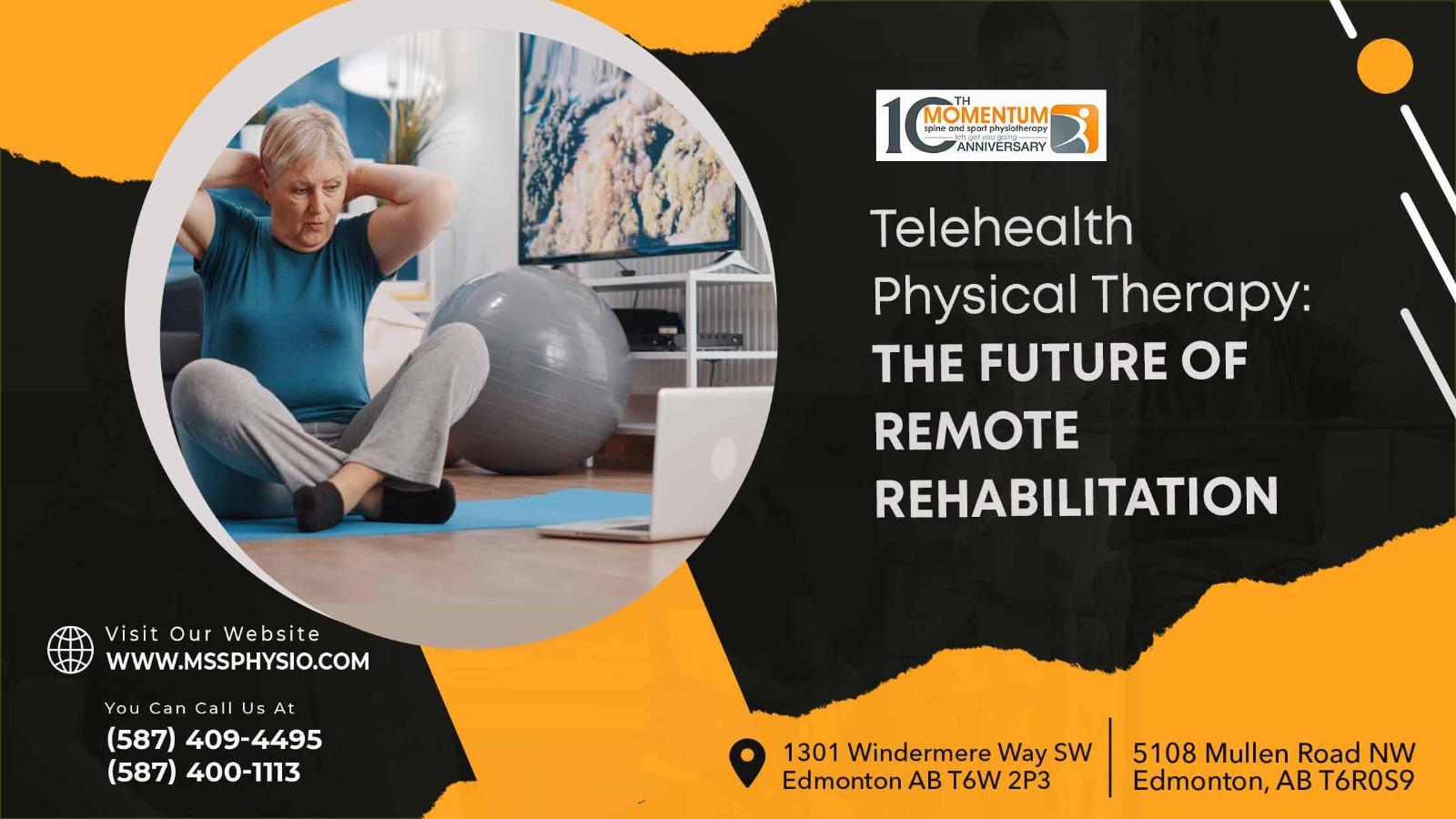
In the rapidly evolving world of healthcare, technological advancements continually push boundaries, reshaping our understanding of care delivery. Telehealth Physical Therapy, a prime example of this evolution, has been on the rise, proving to be a game-changer in the domain of rehabilitation. Momentum Physiotherapy, situated in the heart of Terwillegar, stands as a quality service provider of this digital wave, ensuring patients receive quality care irrespective of geographical barriers.
Understanding Telehealth and Its Evolution
Telehealth refers to the utilization of telecommunication technologies and electronic information to support long-distance clinical health care. Tele-Rehabilitation Physical Therapy, a subset of telehealth, specifically addresses remote rehabilitation services. With smartphones, tablets, and computers being ubiquitous, therapists can now engage with patients in real-time, providing virtual consultations and guided exercises.
Why the Sudden Surge in Tele-Rehabilitation Physical Therapy
Several factors have catalyzed the growth of telehealth in physiotherapy:
The COVID-19 Catalyst: The global pandemic placed unprecedented restrictions on in-person interactions. With lockdowns and safety concerns, there was an immediate need for remote healthcare services, including physiotherapy.
Technological Advancements: The rise in accessible high-speed internet, enhanced video conferencing tools, and user-friendly rehabilitation software have made telerehabilitation a feasible option for many.
Globalization and Accessibility: As our world becomes more connected, there's a growing expectation for services, including healthcare, to be available anytime, anywhere. Tele-rehabilitation answers this call, offering therapy to those in remote locations or those who can't readily access a physical clinic.
Economic Factors: For both providers and patients, telerehabilitation can be cost-effective. It eliminates the need for travel, reduces overheads for clinics, and allows therapists to see more patients in a day.
Increasing Acceptance and Awareness: As more people have positive experiences with telehealth in various medical disciplines, the trust and acceptance of telerehabilitation also grow.
How Physiotherapy Embraces Tele-Rehabilitation
The transition to telerehabilitation was not just about leveraging technology but also about redefining patient care. The clinics utilize state-of-the-art tools to assess patients, provide virtual demonstrations, and monitor recovery progress. By integrating technology with their holistic care approach, physiotherapists ensure patients feel seen, heard, and cared for, even from a distance.
Safeguarding Patient Privacy and Data Security
In the digital realm, the importance of data privacy cannot be understated. Physiotherapy Terwillegar clinics ensure end-to-end encryption of sessions and adhere to strict data privacy laws. Patients can be assured that their information and sessions remain confidential.
Incorporating Hybrid Models for Optimal Care
Recognizing that one size doesn't fit all, many physiotherapy clinics, including Momentum Physiotherapy Terwillegar, are adopting hybrid models. These models combine the best of both in-person and virtual sessions, allowing patients to choose according to their comfort and the nature of their condition.
The Multifaceted Benefits of Remote Rehabilitation
Personalized Care: With Tele-Rehabilitation Physical Therapy, physiotherapists can tailor exercises and treatment plans to individual needs.
Ease of Access: Patients can easily access resources, video demonstrations, and feedback through online portals.
Consistent Monitoring: Therapists can closely monitor patient progress and make real-time adjustments to treatment plans.
Broader Access to Specialists: Geographic barriers dissolve, allowing patients to consult with specialists they might not have access to in their locale.
Flexibility in Scheduling: Both therapists and patients can schedule sessions outside of traditional working hours, accommodating various time zones or work schedules.
Eco-Friendly: By eliminating the need to travel for sessions, there's a reduction in carbon footprint, making it an environmentally conscious choice.
Safety: Especially relevant in the context of contagious diseases or vulnerable populations, remote rehabilitation limits exposure to potential health risks.
Better Attendance Rates: Reduced travel time and the convenience of home sessions can lead to better adherence to therapy sessions.
Challenges and Considerations in Tele-Rehabilitation
While the merits of Tele-Rehabilitation Physical Therapy are evident, it's essential to address its challenges:
Technological Barriers: Not every patient may have access to high-speed internet or the required devices. Ensuring inclusivity is crucial.
Physical Limitations: Some conditions might necessitate hands-on manipulation or therapy, which can't be replicated virtually.
Patient-Provider Rapport: Building trust and a therapeutic relationship over a screen might take longer or may pose challenges for some individuals.
Patient Familiarity with Technology: Some patients, especially the elderly, might have difficulty navigating technology, which could hinder their therapy sessions.
Regulatory Hurdles: As with many digital health solutions, telerehabilitation sometimes faces regulatory challenges, with policies and regulations struggling to keep pace with rapid technological advancements.
Equipment Limitations: Not all therapeutic equipment used in in-person sessions can be easily replicated or used in a home setting.
Embracing the Digital Wave in Physiotherapy:
The leaps in telehealth are not just about the technology but the profound impact on patient care. As clinics like Momentum Physiotherapy Terwillegar continue to push the envelope, the future of rehabilitation seems not just remote but remarkably promising. The convergence of technology and healthcare has opened up horizons we're only beginning to explore, ensuring that rehabilitation knows no bounds.
Also read about:
Kunjungan Presiden Rusia Vladimir Putin
HOW TO BUY PERCOCET ONLINE RISK AND LEGAL WAYS
Motor Vehicle Accident Physiotherapy How Does it Aid Recovery










